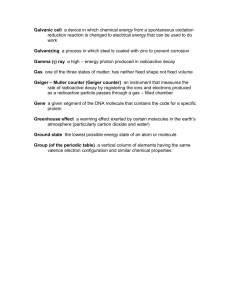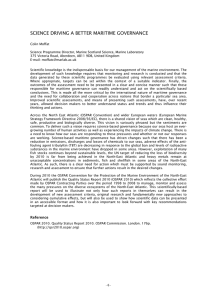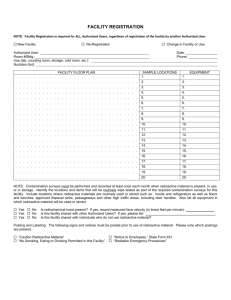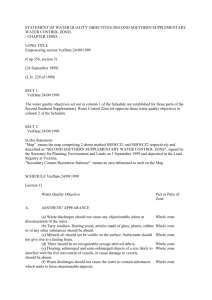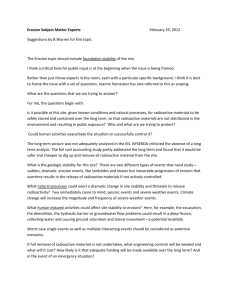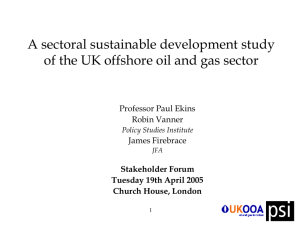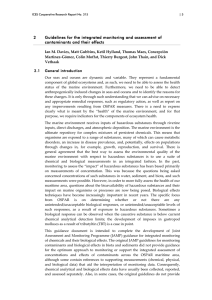201. Protection of the Marine Environment
advertisement
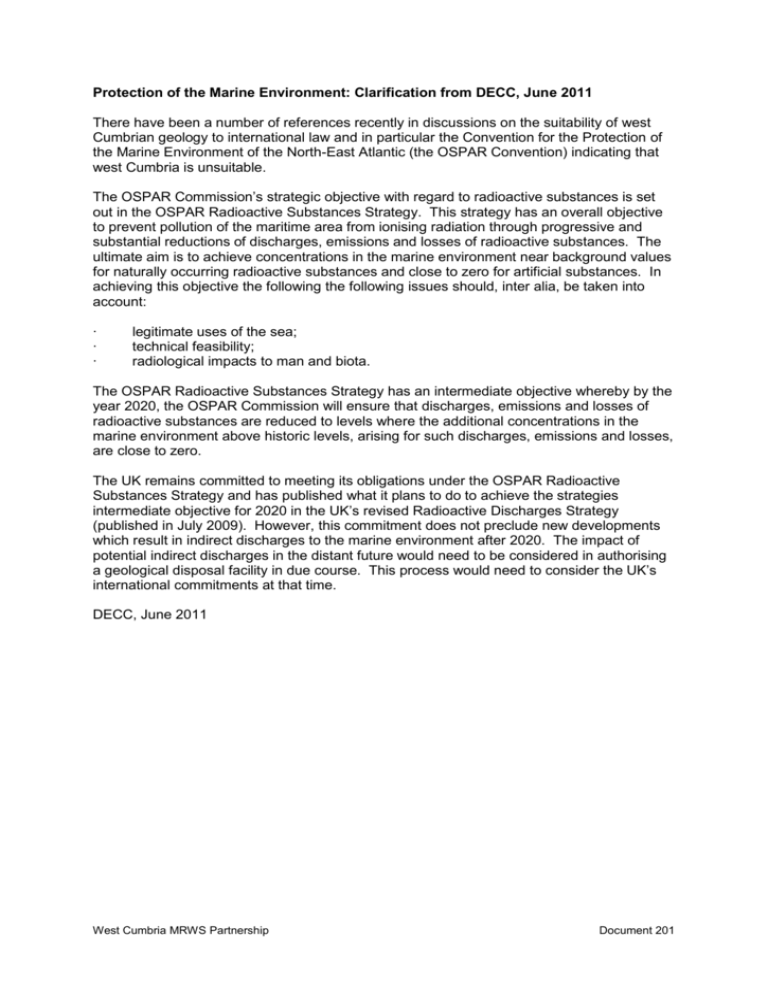
Protection of the Marine Environment: Clarification from DECC, June 2011 There have been a number of references recently in discussions on the suitability of west Cumbrian geology to international law and in particular the Convention for the Protection of the Marine Environment of the North-East Atlantic (the OSPAR Convention) indicating that west Cumbria is unsuitable. The OSPAR Commission’s strategic objective with regard to radioactive substances is set out in the OSPAR Radioactive Substances Strategy. This strategy has an overall objective to prevent pollution of the maritime area from ionising radiation through progressive and substantial reductions of discharges, emissions and losses of radioactive substances. The ultimate aim is to achieve concentrations in the marine environment near background values for naturally occurring radioactive substances and close to zero for artificial substances. In achieving this objective the following the following issues should, inter alia, be taken into account: ∙ ∙ ∙ legitimate uses of the sea; technical feasibility; radiological impacts to man and biota. The OSPAR Radioactive Substances Strategy has an intermediate objective whereby by the year 2020, the OSPAR Commission will ensure that discharges, emissions and losses of radioactive substances are reduced to levels where the additional concentrations in the marine environment above historic levels, arising for such discharges, emissions and losses, are close to zero. The UK remains committed to meeting its obligations under the OSPAR Radioactive Substances Strategy and has published what it plans to do to achieve the strategies intermediate objective for 2020 in the UK’s revised Radioactive Discharges Strategy (published in July 2009). However, this commitment does not preclude new developments which result in indirect discharges to the marine environment after 2020. The impact of potential indirect discharges in the distant future would need to be considered in authorising a geological disposal facility in due course. This process would need to consider the UK’s international commitments at that time. DECC, June 2011 West Cumbria MRWS Partnership Document 201
